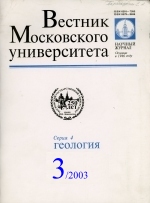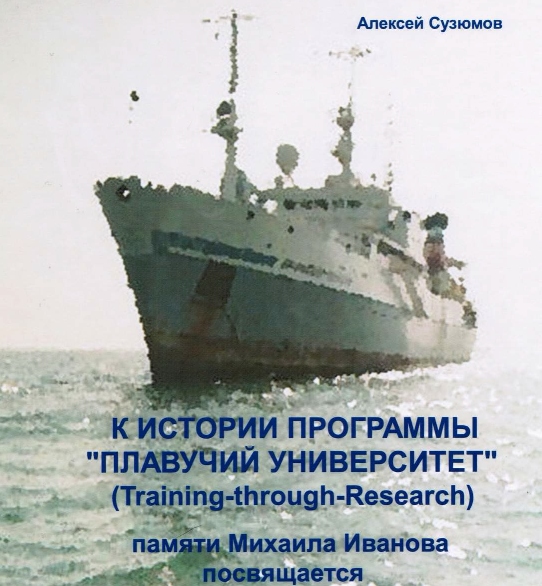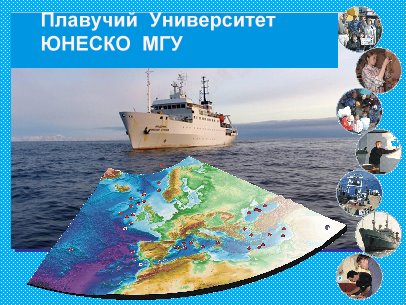History of Floating University
The project "Class @ Baikal" was created as a part of long-term international scientific and educational program Training-through-Research Floating University. Class@ Baikal is based on principles and is carried out by dedicated enthusiasts of TTR program.
Dreaming of a "Class @ Baikal" development, we wish it will achieve considerable success and get the recognition and support. Also it will be useful to remember the history of TTR.
The main idea of Training-through-Research program is to educate the international community of young professionals, representatives of different cultures who complement each other. They will be able to produce high-quality scientific data under the supervision of competent scientists. The main idea of TTR is "Education through Research».
(From «Floating University», SS.95 / WS.1, UNESCO, 1995)
History and achievements:
Since 1984 marine geological and geophysical practice in the Black Sea was held at the Geological Faculty of Moscow State University. During it students worked on scientific ships in a real sea expedition. Gradually, scientific publications began to refer to the results of the practice. Then the idea to invite to the practice European universities and research centers and to make something like “the university” on board appeared. This idea was first "announced" in 1986 in Paris at the UNESCO conference. During the first international expedition on the boat of "Akademik Petrovsky" in 1990 structure and objectives of the "Floating University" was created. The first international student's practice happened in 1991 after getting the support of UNESCO, of the European Science Foundation and universities of Netherlands, Germany, France, Italy, Turkey and Israel. This practice became an annual event
In 2011 "Floating University" celebrated its 30th anniversary. That is very prestigious for scientific projects.
Training through research is a new type of education. Students are involved in the real expedition at all stages. High responsibility and work side by side with world-renowned scientists help students to learn faster and better. They become not only observers but also participants of the work at the forefront of science, the authors of most of these discoveries, the creators of the history of scientific achievements.
The "Floating University" is an educational program not only for students. The expeditions and in the laboratories of universities, at meetings and geological excursions reigns truly friendly informal atmosphere. There professors, scientists experts in different areas are to open exchange of experience between each other. And this is also training through research, and is also a unique achievement "Floating University".
Scientific projects and research priorities of the "Floating University" are determined at the annual meetings of the Scientific Program Committee, which includes well-known European and Russian scientists. This committee is composed of the permanent members who develops financial strategy, creates the schedule of major events of the year, and determines specific tasks.
Academic year of the "Floating University" begins with the preparation of expedition. The basis for TTR program is traditionally the scientific ships of the Ministry of Natural Resources of the Russian Federation and the Russian Academy of Sciences. Then scientists and students from leading European universities and research centers on marine geology are invited to the expedition. Usually expedition lasts for five to six weeks and is usually divided into several stages according to the area of work and research tasks. Up to 20 foreign scientists and students may participate in every stage of expedition. Russian scientists and students usually participate in all stages. Each stage of expedition finished with discussion of the results, writing scientific reports and planning of further laboratory studies. At the end of the expedition, participants return to their universities and research centers, but the "Floating University" continues its functioning. Like on board scientists and students from different countries work with each other in laboratories. The results of such work are publications in international scientific journals.
Another important annual event of the "Floating University" is the "meeting after the expedition". It is usually held in late January - early February in the country of one of the members of the last expedition. At the meeting participants discussed collected materials, results and make plans for the future.
During last 20 years more than 1000 students and leading scientists from Algeria, Belgium, Great Britain, Greece, Georgia, Denmark, Ireland, Spain, Italy, Morocco, Netherlands, Russia, Saudi Arabia, the United States, Tunisia, Turkey , Ukraine, France, Chile and Switzerland take part in TTR program. Russian students and graduates participate in national and international conferences. Expedition expands its geography. From the waters of the Black Sea and the Mediterranean the "Floating University" went out into the Atlantic and the North-Arctic oceans. Marine research centers of Belgium, Holland and France invite with a great pleasure Russian participants, students of the "Floating University" to in their expedition. Enthusiasts of the"Floating University" established at MSU Training and Research UNESCO Centre of Marine Geology and Geophysics and the UNESCO Department in Marine Geology and Geophysics.
Main scientific results of the "Floating University" achieved in the field of marine geology, lithology, and seismic geoacoustics, gas geochemistry and sedimentary rocks, mineralization in areas of gas output, hydrogeology, marine biology. Every year, the "Floating University" participates in international meetings and many European projects.


